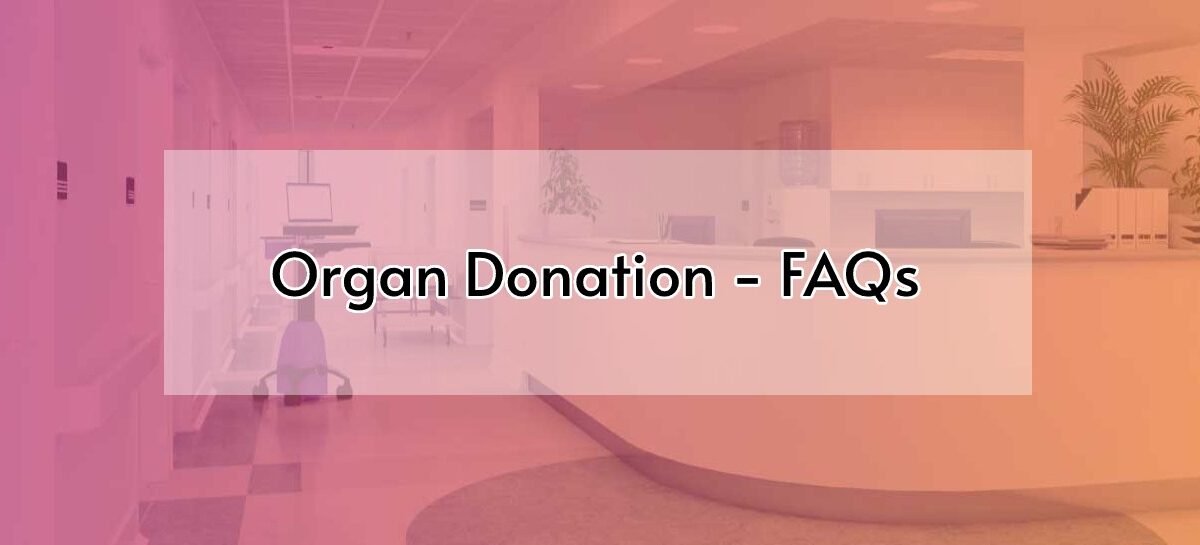Organ Donation day is observed on the 13th August every year with the objective of raising awareness of about organ donation to all. There are many patients waiting on the deceased donor organ transplant list and many die even without getting a suitable organ donor. The deceased donor program although has improved in our country in the last 2 decades, there is still a lag between the organ demand and the supply. This is mainly due to inhibition from the people and their immediate family when it comes to organ donation which is often discussed in the last minute to them and their obvious answer for consent to donate organs is a no.
Organ donation is a very a noble act and the Life continues after one’s death through organ donation. One organ donor can save 8 lives if all the organs in his/her body are functioning normally. On 13th August of every year people across the nation are encouraged to “pledge” the organs for donation this day.
1. Who can be an organ donor?
Anyone more than 18 years can be an organ donor. Those less than 18 years the consent has to be given by the parents/guardian. The above age limit is subject to the medical condition of the donor at the time of death with his/her co morbidities. For example a patient with chronic kidney disease who is brain dead in the ICU, may still be eligible to donate his/her liver or heart after medical examination but not the kidneys.
2. If I decide to be an organ donor what do I do next?
Well that’s great first of all. We should fill up Form 7 of the Human Organ Transplant Act which is called the pledge form. It has our basic demographic details and what all organs we intend to donate. These forms are available online at the NOTTO website (National Organ Transplant and Tissue Organization). The NOTTO is the central organization which lists all the people and the hospitals attached to it for organ retrieval at the time of donor death. If the online option is not available, the same form can be downloaded and filled. It has to be sent to NOTTO office. The same form is also available with various NGO’s like Mohan foundation also, where they help you to submit it online. Once we are registered, donor pledge card is sent which is to be kept safely. It is pertinent to inform our nearest kith and kin about our decision as their consent is very important at the time of organ retrieval.
3. Do I have to register as an organ or tissue donor with hospital or national registry?
The NOTTO has a state organization for every state namely the SOTTO (State organ transplant and tissue organization). All the hospitals are listed under them. So if we have registered in one organization we need not register under another one, be it state or central.
4. When would my family be asked about donating my organs?
Organ donation counseling starts after a patient in the ICU is declared brain dead by a team of ICU and neurologists. Most common causes of brain death are road traffic accident and cerebrovascular accident. The organ donation counseling starts when the patient is declared brain dead. The families are then counseled for organ donation. It becomes easy if the patient or the family had already pledged their organs for donation. Donation after cardiac death is rare in our country although it is widely acceptable in Europe and United states.
5. Will my family incur any medical expense if I consent for organ donation?
No. The usual expense for the underlying medical condition is incurred, but not for organ donation.
 Dr. Balaji Kirushnan
Dr. Balaji Kirushnan
Consultant Nephrologist
Kauvery Hospital Chennai



